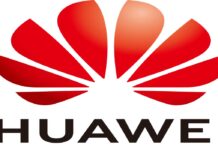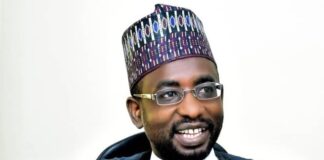Exploits of technology sector in 2022
By Adeyemi Adepetun
TECHDIGEST – One major landmark event that brought Nigeria to the global stage in 2022 was the launch of the Fifth-Generation (5G) network. Aside this development, the telecoms operators also began their recovery after a tortuous 2021 occasioned by the impact of the NIN/SIM exercise. ADEYEMI ADEPETUN, reports
In the next 72 hours, the year 2022 would have become a history and 2023 beckons. Globally, for the information and communications technology sector, it has been historical, going by the various events that shaped proceedings in the year.
From the deployment of the Fifth-Generation (5G) networks to inventions by startups; relocation of technology experts across the globe to mass disengagements by multinationals organisations; increase in various cyber attacks to online compromises, among others.
Indeed, Nigeria was not left out! After a successful auction of two lots of the 3.5GHz spectrum on December 13, 2021 in Abuja by the Nigerian Communications Commission (NCC) under the leadership of Prof. Umar Danbatta, year 2022 was set to bring in new waves of transformation.
The 5G journey
By the end of December 13, 2021, MTN Nigeria and Mafab Communications Limited had won the licences to deploy 5G technology in Nigeria. This came after about two trials of the network by MTN earlier in 2021.
On or before February 24, the duo of MTN and Mafab had coughed out $547 million to the Federal Government as required by the information memorandum (IM) for the award of the 5G spectrum licences. From there, ground works started for the full deployment by August, going by the timetable. While MTN, led by its Chief Executive Officer, Karl Toriola, began deployment on a pilot basis in August and commercial launch in September, this enabled some 81 clusters in Lagos witnessed the service, while other cities including Abuja, Port Harcourt, Ibadan, Kano, Owerri, and Maiduguri were penned down for later part of the year into 2023.
Historically, the MTN launch in Nigeria enabled the country to rank among the first three countries after South Africa and Kenya to have started 5G on the African continent.
The second winner, Mafab Communications, was, however, granted a five-month extension to roll out over delays in obtaining its unified operational licence (UASL) and Numbering Plan from the NCC. It only secured the two vital documents at the end of July.
While there are reports that Mafab would deploy the service before the year ends and beats projections, Nigerians are eagerly awaiting the service from the company.
Chairman of Mafab Communications, Dr. Mushabu Bashir, had said in a statement that the company remained resolutely committed to the deployment of the technology.
“We are fully committed to bringing the benefits of 5G services to Nigerians and deploying a network that will drive economic development with increased broadband capabilities nationwide. I have no doubt that the service will help deliver improvements in the fields of education, business, smart cities and entertainment.
“The goal remains to launch before the five-month extension period and we will be sharing more information in the near future,” he had said.
For emphasis, the 5G is expected to offer Nigerians higher data speed, improved reliability and availability. The benefits are far reaching, as the service will enable Nigerians to achieve more with broadband and increase the nation’s broadband penetration, quality of service and capabilities.
Airtel joins the 5G race
After initial preparation for the second round of auction for the remaining lots of the 3.5GHz spectrum for more 5G licenses in the country, scheduled for December 19 in Abuja, the NCC announced that by the close of business on December 5, only Airtel Networks Limited (Airtel) and Standard Network & Connections Limited (Standard Network) had expressed interest in the auction of the 3.5GHz spectrum band.
READ ALSO: Nigeria’s Startups Invent 384 Products as Digitisation Expands – Kashifu
However, only Airtel paid the Intention to Bid Deposit (IBD) as stipulated in the IM whereas, Standard Network sent an email appeal for the deadline to be extended by 12 working days, which was not acceptable in view of the auction timetable. Having met the provisions in the IM, Airtel therefore, emerged as the sole bidder.
Weathering the NIN/SIM challenge
Tortuous for subscribers and operators to say the least was the process that compelled the linkage of the National Identity Number (NIN) to Subscriber Identification Module (SIM) cards in the country, especially when COVID-19 was at its fiercest.
Now almost two years after, some 93 million NINs have been issued and linked to various SIMs. However, 2020 into 2021, close to 20 million lines were barred. By the start of 2022, operators had to deploy several means, including wooing through various promos to encourage Nigerians not to permanently dump their SIMs for economic reasons to all the parties involved.
Indeed, there have been massive boost in mobile lines in the country. The number of connected lines across the mobile networks of MTN, Globacom, Airtel, and 9mobile continued to grow, rising to 321 million in October, according to the NCC. However, only 214 million of these lines were active.
MTN sustained its dominance accounting for 38.85 per cent with a total of 83.2 million active subscriptions. Globacom maintained its second position with a market share of 27.82 per cent, having recorded 59.6 million active lines in the period under review.
Airtel’s market share stood at 27.37per cent with 58.6 million active subscriptions. 9mobile, on the other hand, had only a 5.96 per cent share of the mobile market with 12.7 million subscriptions.
Telecoms sector’s resilience
The resilience of the telecoms sector cannot be swept under the carpet. The industry continued to be the pillar of the nation’s economic growth as the nation’s Gross Domestic Product (GDP) grew by 2.25 per cent in the third quarter of this year with its strong support.
The National Bureau of Statistics (NBS), which released the figure, said the economic growth rate however, declined when compared to 4.03 per cent growth achieved in this period of last year.
It attributed the reduction in growth to the base effects of the recession and the challenging economic conditions that have impeded productive activities.
Statistician-General, National Bureau of Statistics, Prince Semiu Adeniran, said data for the analysis were obtained from the quarterly establishment survey conducted by the NBS. He said the third quarter economic growth was driven by the non-oil sector, which grew by 4.27 per cent in real terms.
He explained that the rate was lower by 1.18 per cent points compared to the rate recorded in the same quarter of last year and 0.50 per cent points lower than the second quarter of the year.
“This sector was driven in the third quarter of 2022 mainly by Information and Communication (Telecommunication), Trade, Transportation (Road Transport), Financial and Insurance (Financial Institutions), Agriculture (Crop Production) and Real Estate, accounting for positive GDP growth,” the report said.
Read Also:
According to the report, in real terms, the non-oil sector contributed 94.34 per cent to the nation’s GDP in the third quarter of 2022, higher than the share recorded in the third quarter of 2021 which was 92.51 per cent and higher than the second quarter of 2022 recorded as 93.67 per cent.
Enters the ‘Japa’ syndrome
As beautiful as the sector moved in 2022, the ‘Japa’ syndrome was very confrontational on the achievements of the sector. With many technology savvy guys having to leave their paid employments in Nigeria for something greener abroad. This almost brought some companies down, especially in the banking sector.
The Guardian had reported on August 29, how software, hardware engineers, system integrators, digital marketers, accountants and auditors were dumping high-paying employment in banking, financial technology, education, insurance, manufacturing and teaching as economic opportunities shrink amid rising insecurity in Nigeria for offers from abroad.
A Chief Information Officer of one of the leading first-generation banks, who preferred anonymity, had told The Guardian that within the first-half of the year, about 750 software engineers resigned their appointments from some of the leading financial institutions in the country to pick what they described as mouthwatering offers from overseas companies. The popular destinations were Canada, the UK, Ireland, Germany and the United States.
The Marketing Manager, Eskimi Africa, an AdTech platform that helps brands and agencies to conduct programmatic advertising campaigns, Oluwatobi Adekunle, said the attraction abroad remains very huge.
Adekunle said the attraction is that everybody wants to earn dollars, live in an environment that is comfortable for them to grow and know that the future is guaranteed, which according to him, is missing here.
“For example, a digital marketer in Nigeria at a professional level, who is at the peak of his career, may be earning N800, 000, but outside the country, you can earn between $4,500 and $5,000 a month. Convert that to Naira and you become a ‘big boy’. It is a lot of money. The fact that you can earn a dollar, grow your career among others is enough attraction for anybody to leave this country.”
The Twitter challenge
On April 25, this year, Twitter’s Board of Directors agreed to founder/Chief Executive Officer (CEO), Tesla, Elon Musk’s buyout offer of $44 billion, which effectively made the company private. Musk had stated that he planned to introduce new features to the platform, make its algorithms open-sourced, combat spambot accounts, and promote free speech. He also said jobs must be cut.
Job losses took shine of the sector
As expected, Musk didn’t disappoint following his various rash decisions after taken over Twitter. Twitter’s Chief Executive, Parag Agrawal, and the Chief Financial Officer, Ned Segal, were emailed that they had been fired and this led to gale of resignations and mass sack.
Just over a week after closing the deal, he eliminated nearly half of Twitter’s work force, or about 3,700 jobs. The job cuts affected many divisions across the company, including the engineering and machine learning units, the teams that manage content moderation, and the sales and advertising departments.
This gale of mass sack also affected Twitter’s only African office in Accra, Ghana, with almost all the workers laid off. Then came the verification subscriptions. Twitter said it would begin charging customers $7.99 monthly to receive a coveted verification check mark on their profiles. But the rollout was delayed until after the mid-term elections after Twitter users and employees raised concerns that the new pay-for-play badges could be misused to sow seeds of discord.
In the gale of mass sack, Twitter was not alone, Meta (Facebook), Amazon, among others also had their fair share of the challenge. For instance, Meta laid off 11,000 people, about 13 per cent of its global workforce including Nigerian employees in diaspora and in Africa, as it contends with faltering revenue and broader tech industry woes.
The message of job cut was communicated in a letter by the Chief Executive Officer, Mark Zuckerberg to employees across Facebook, WhatsApp, and Instagram.
Massive malwares, ransonware attacks
Cyber criminals also launched several attacks across all platforms. Indeed, in 2022, the Nigerian Communications Commission’s Computer Security Incident Response Team (NCC-CSIRT) was kept on its toes by a myriad of malware vulnerability reports.
The NCC issued over 10 alerts in the course of 2022, from Somnia Ransomware, Xenomorph Malware, Schoolyard bully malware, Invisible Challenge on short-form video hosting service, TokTok, QBot malware and many others.
In response to the discovery of a new attack that compromises victims’ Virtual Private Network (VPN) accounts to compromise messaging app, Telegram, NCC-CSIRT advised users to adopt two-factor authentication to protect their Telegram accounts and not to download unknown Advanced IP Scanner Software.
Ukrainian cyber experts discovered the attack, which uses Vidar Malware (Vidar Stealer) to steal Telegram session data, which in the absence of configured two-factor authentication and a passcode, allows unauthorized access to the victim’s telegram account and corporate account or network.
The malware, which exploits unauthorized access to users’ Telegram accounts and corporate accounts to steal data, targets platforms across iOS, Android, Linux, Mac and Windows Operating Systems.
“The Ukrainian CERT alleged that a Somnia Ransomware was created to be used on Telegram that tricks users to download an installer that mimics ‘Advanced IP Scanner’ software, which contains Vidar Malware. The installer infects the system with the Vidar stealer, which steals the victim’s Telegram session data to take control of their account.
“The threat actors abuse the victim’s Telegram account in some unspecified manner to steal VPN connection data (authentication and certificates). If the VPN account is not protected by two-factor authentication passcode, the hackers use it to gain unauthorized access to the victim’s employer’s corporate network,” the alert and advisory stated.
Nigeria made ITU Council membership
During the year, Nigeria was re-elected as a Council member of the International Telecommunication Union (ITU), the United Nations specialised agency that oversees global telecommunication operations. Nigeria will serve on the Council again from 2023-2026.
The election of Nigeria and other countries into different regional groups that constitute ITU Council, was the highpoint of the Plenipotentiary Conference 2022 (PP-22) held in Bucharest, the capital city of the Republic of Romania.
The Nigerian delegation was led to the global event by the Minister of Communications and Digital Economy, Prof. Isa Pantami. Other members of the delegation included Chairman, Board of Commissioners of NCC, Prof. Adeolu Akande, and the Executive Vice Chairman/Chief Executive Officer of NCC, Prof. Umar Danbatta.
At the conference, which was held between September 26 and October 14, 2022, member states voted on the composition of the next ITU Council and the 12 representatives to serve on the Radio Regulations Board (RRB) for the next four years.
The 21st Plenipotentiary Conference of the Council also saw the election by member states, of Doreen Bogdan-Martin of the United States (US) as the organisation’s next Secretary-General.
Like Nigeria and the countries elected into the Council, Bogdan-Martin, as the first woman to lead ITU in its 157-year history, will begin her four-year term from January 2023, when Houlin Zhao would have completed his second final term of four years in office as ITU Secretary General.




















